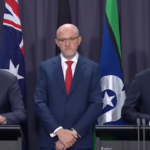People Power: Russian Drug Users Fight Government

Three drug user activists are challenging the Russian government’s zero-tolerance approach to illegal drugs. The trio have filed a case in the European Court of Human Rights (ECtHR), claiming Russia’s blanket ban on substitution treatments is an abuse of their rights.
Opioid substitution therapies (OSTs) provide users with a replacement drug, such as methadone or buprenorphine. These medications are listed on the World Health Organisation’s essential medicines list, and the treatments are endorsed by the United Nations Office on Drugs and Crime and UNAIDS.
The effect of substitution treatments
The medicines are usually administered orally. Around 10 percent of new HIV cases worldwide are attributed to injecting drug use, and thus OSTs prevent further transmission. The therapies allow users to lead a more stable life. They reduce the risk of overdose and criminal activity, while also providing financial stability.
Substitution treatments are available in countries throughout the developed world. In the UK, 90 percent of injecting drug users are receiving the therapies, while in Australia around 69 percent are doing the same.
Russia’s zero-tolerance approach
However, Russia has a notoriously tough stance on illicit drug use. The only option for heroin users seeking treatment are state-run detoxification programs. Naloxone, a medication that blocks opioid receptors in the brain, is administered to a patient, who is then left to go cold turkey.
In Russia, opioid substitution treatments have been banned since the 1970s and other harm minimisation initiatives, such as needle syringe programs, are also outlawed.
The activists
The three activists filed separate cases before the ECtHR. The court has joined their applications together to consider Russia’s ban on OST under one case. The activists are Irina Abdyusheva Teplinskaya, Alexey Kurmanayevskiy and Ivan Anoshkin.
All three have been using drugs for decades and have suffered life-threatening illnesses as a result. The activists are all living with HIV and hepatitis C and over the years, have tried all available treatments in Russia without success.
They pushed for access to substitution treatment within Russia’s domestic legal system in the past, but to no avail. So now they’ve taken their fight to the ECtHR claiming the Russian government’s refusal to provide them with these life-saving treatments is a violation of international human rights law.
An abuse of human rights
The trio’s argument is that the ban on OSTs is a breach of human rights under Article 3 and 14 of the European Convention on Human Rights (ECHR).
Under Article 3, vulnerable groups have a right to special protection. The activists argue that in Russia, people who use drugs are an historically marginalised group in need of such protection; so to deny them OST leads to extreme deprivation, which is incompatible with human dignity.
They also argue that they’re subject to discrimination, as the OST ban denies drug users access to essential treatment that stabilise their health condition, and thus their lives. To discriminate against someone because of their health status is, the activists argue, a violation of Article 14, which must capture chronic opioid dependence.
They argue the situation is akin to denying diabetics access to insulin.
The Russian HIV epidemic
The case is before the ECtHR at a time when the need for harm minimisation programs in Russia has never been more critical. At present, the country is undergoing a HIV epidemic. In 2015, 27,500 Russians died as a result of HIV, and 95,000 new cases were diagnosed.
In January this year, the millionth person in the country was officially diagnosed with HIV. However, Vadim Pokrovsky, head of the Federal AIDS centre, said the actual number is closer to one and a half million. He predicts the number will double to three million cases within the next five years.
And while western countries have implemented harm reduction programs that have virtually stopped HIV transmission amongst intravenous drug users, the number is skyrocketing in Russia, with 55 percent of new infections attributed to injecting drug use.
The problem in the Ukraine
When the Russian Federation annexed Crimea in March 2014, they brought with them their bans on substitution therapies and needle syringe programs. Within four weeks of the takeover, the 800 Crimean drug users who were undergoing OSTs had their treatments stopped.
Many of these people were forced back out onto the streets. By January 2015, local rights activists estimated that around 10 percent of them had died, due mainly to suicide and overdose.
The Canadian approach
But other nations around the world are making advances in harm minimisation. Last week, the Canadian government approved new regulations that allow doctors to prescribe pharmaceutical-grade heroin – known as diacetylmorphine – to users with chronic heroin dependence.
The treatment will only be available to a small number of users, who’ve found traditional treatments ineffective.
The move will allow Vancouver’s Crosstown clinic to expand its existing heroin-maintenance program. Since 2005, a small number of patients have been provided with free injections of the drug administered by a nurse up to three times a day.
The program is the only one of its kind in North America, but similar approaches are being undertaken in eight European countries.
The Trudeau government has also approved a four-year extension to Insite, North America’s only medically supervised injecting facility. And in April, the government announced it would legalise the sale of marijuana by next year. It has already appointed a task force to determine how a regulated cannabis market will work.
The significance of the European Court of Human Rights case
If the case before the ECtHR is successful, it will be the first legally binding decision by the court that recognises that people who use drugs are a vulnerable group, entitled to legal protection. It will also be the first time an international human rights body has formally considered a state’s obligation to provide treatments to facilitate a humane drug policy.
If the activists are successful, it may mean that the Russian government will be forced to confront their heavy-handed approach to drugs, as it will demonstrate that it is out of touch with European standards and international human rights obligations.







